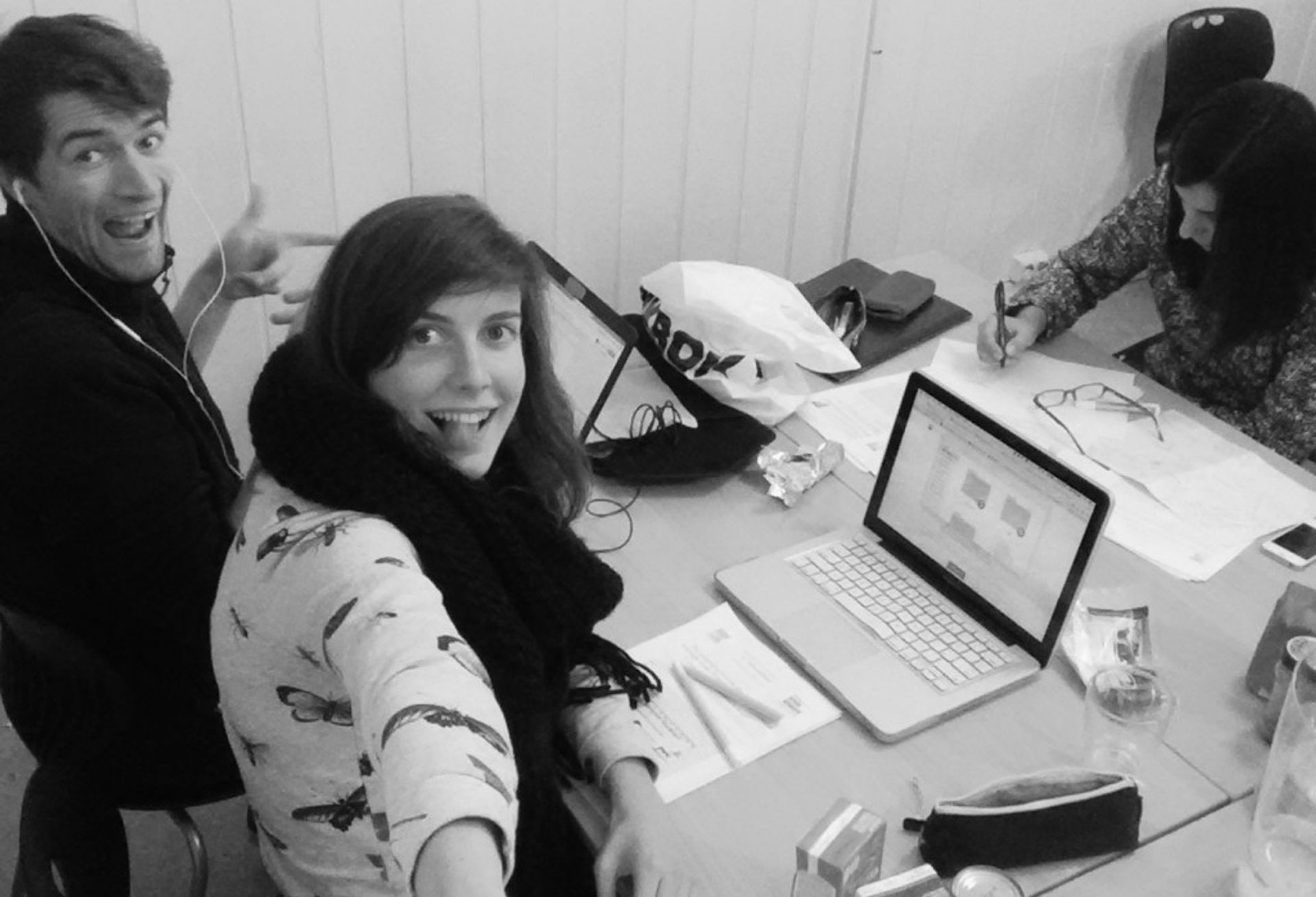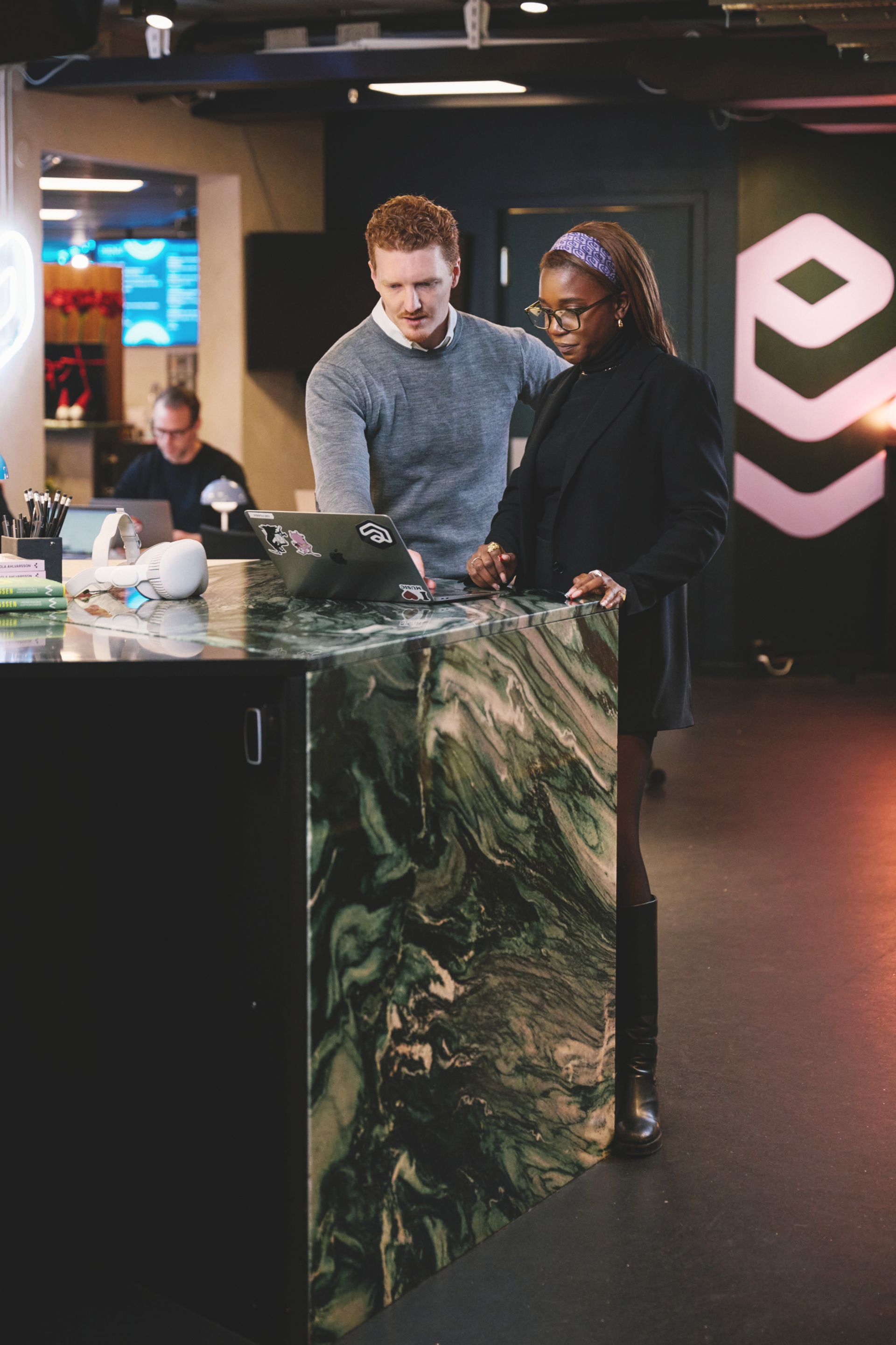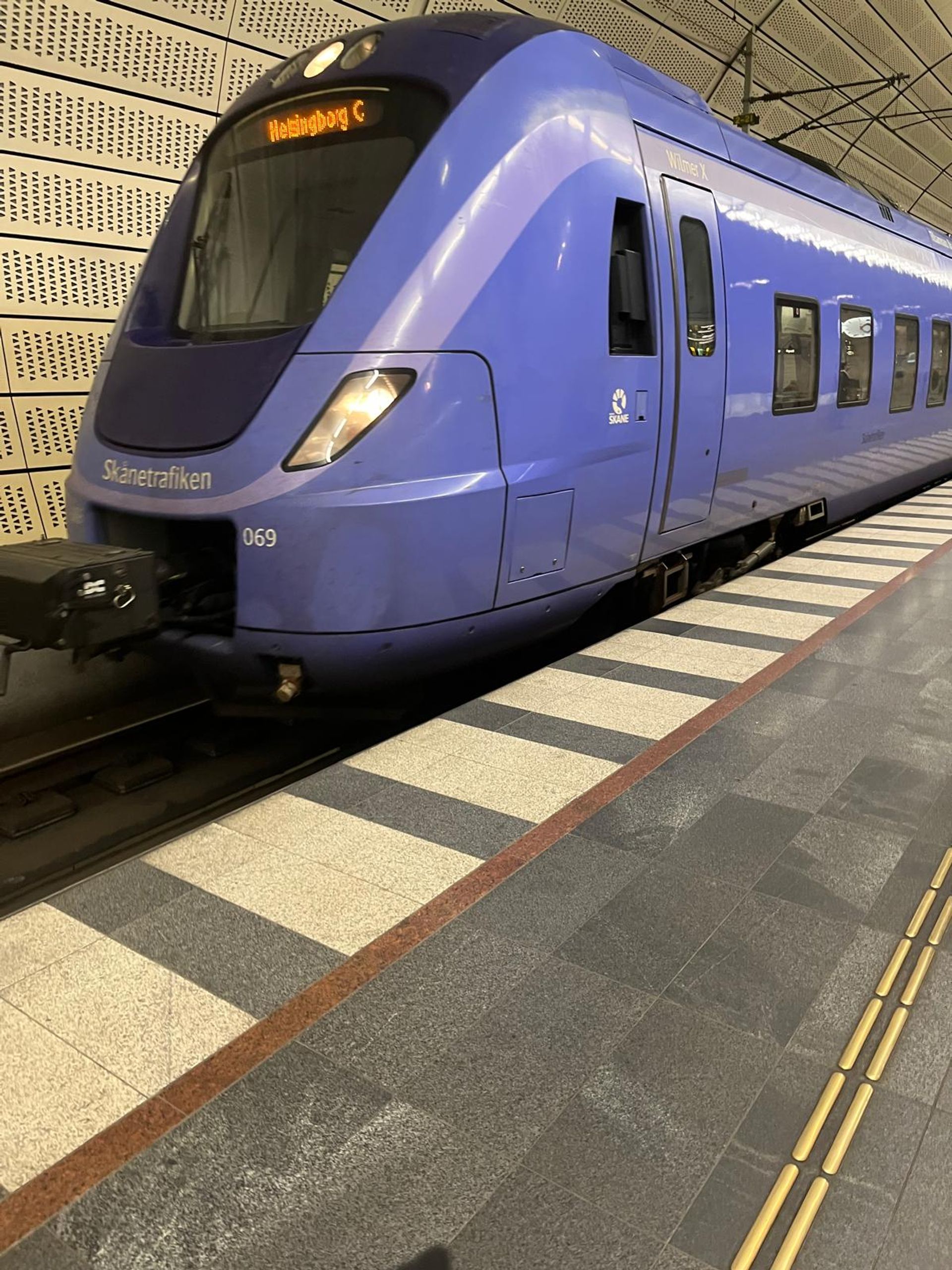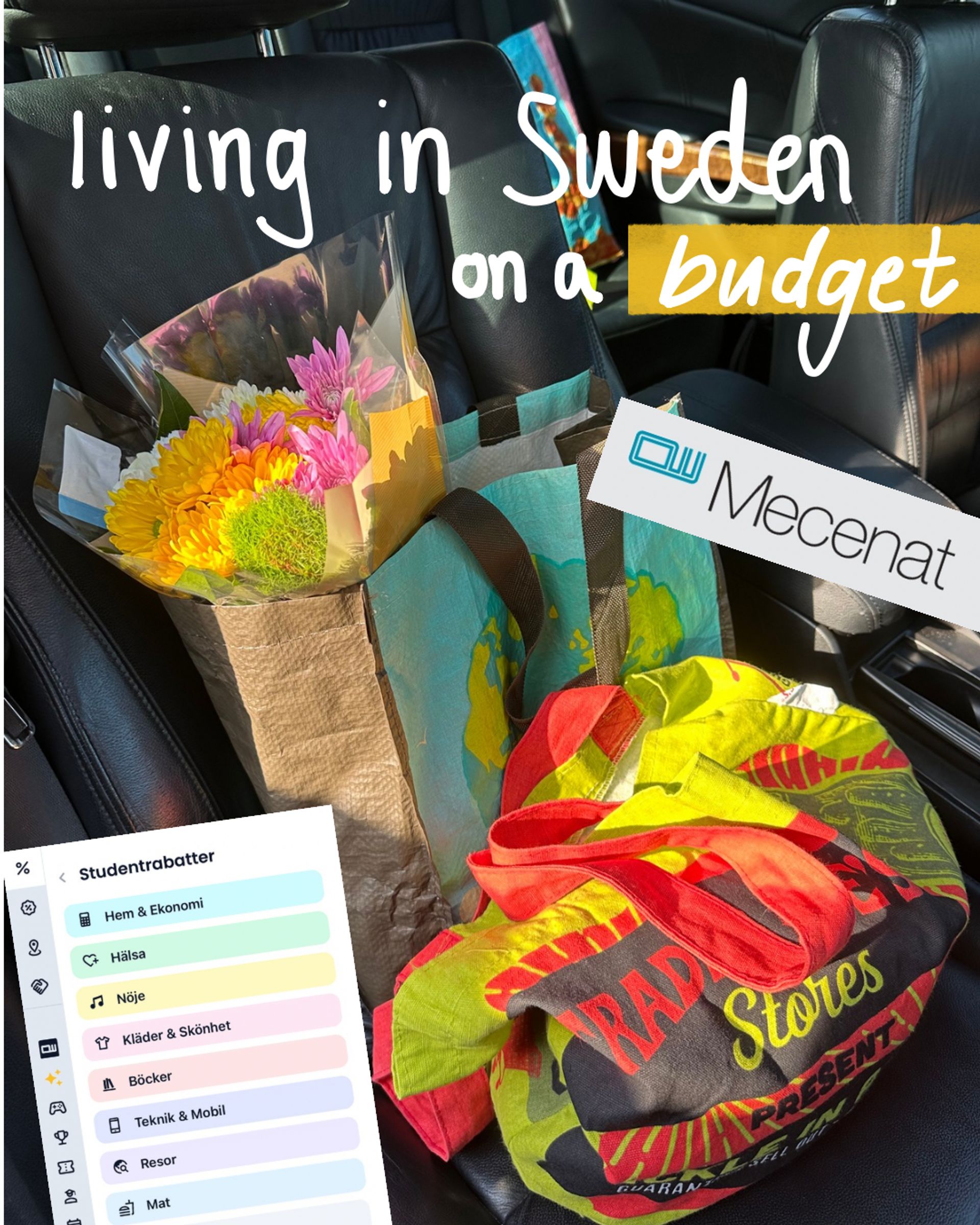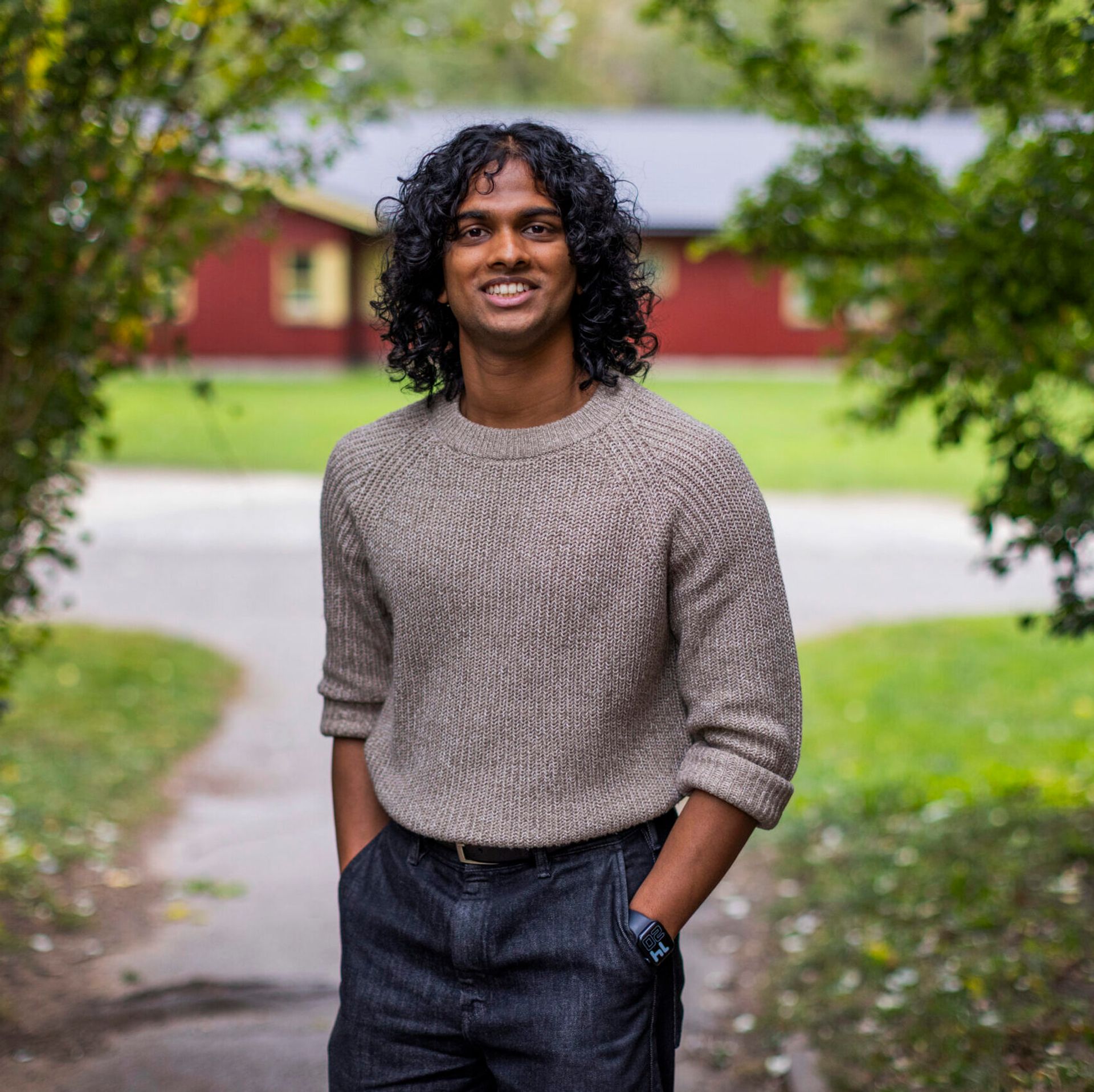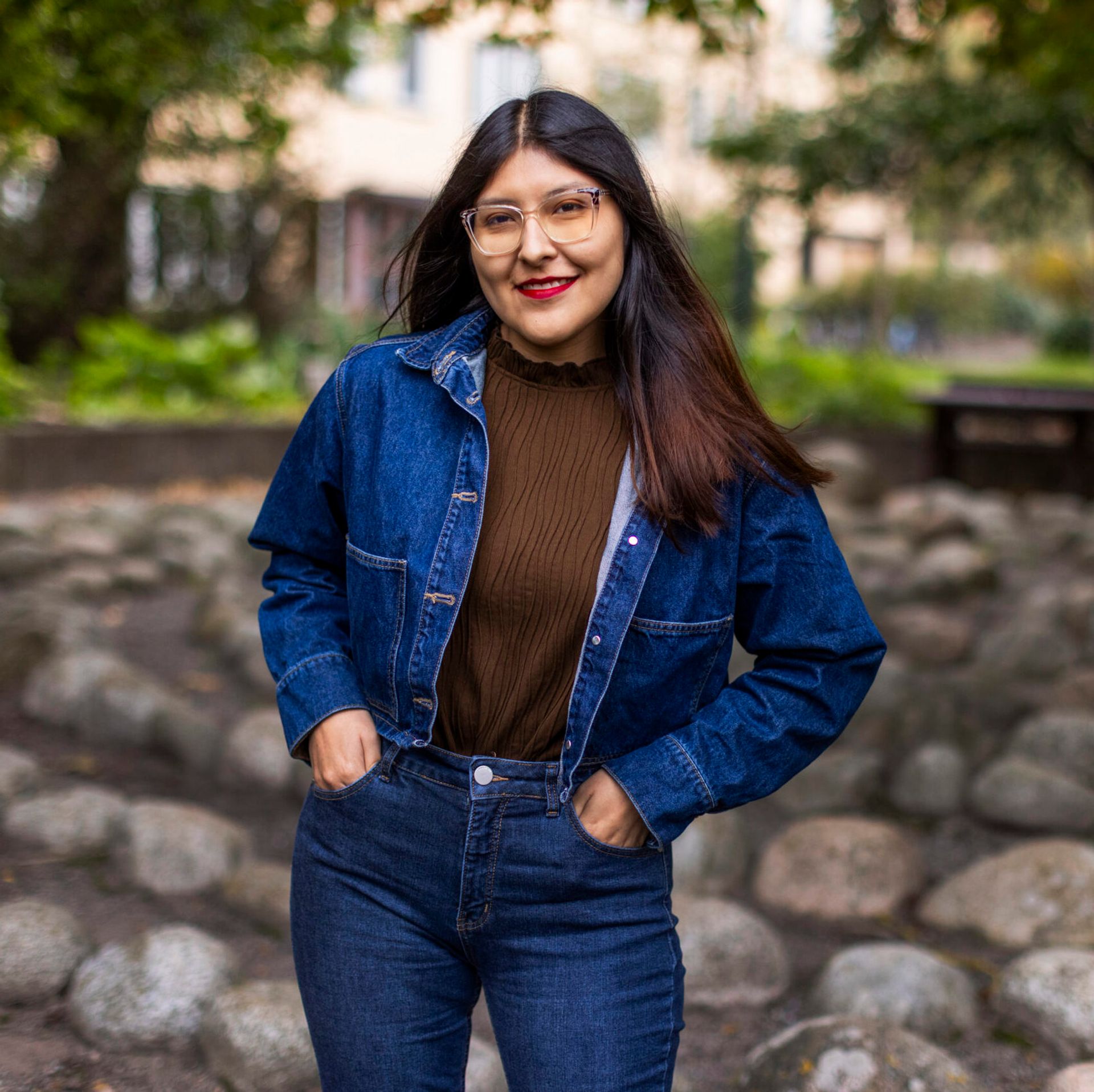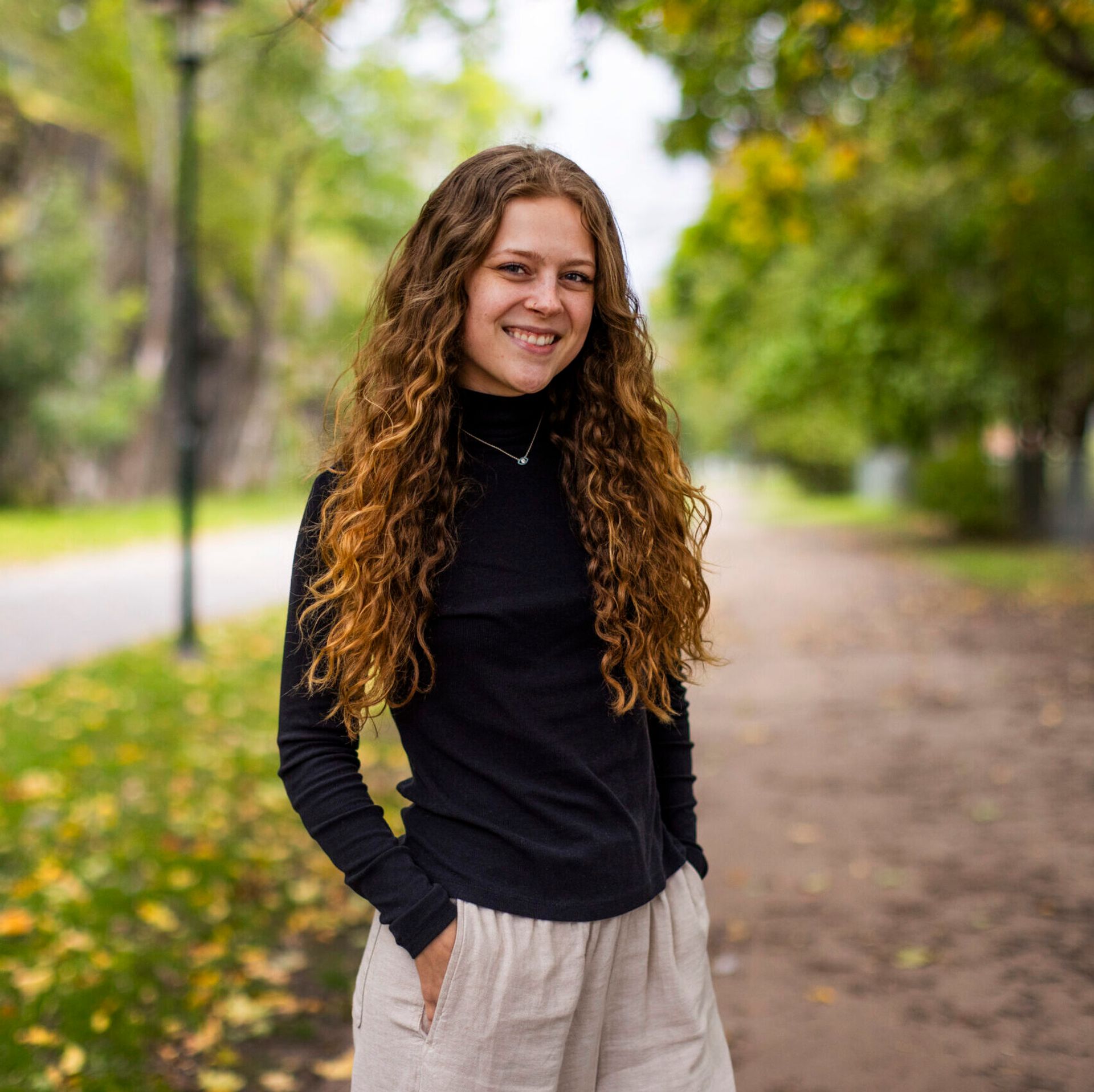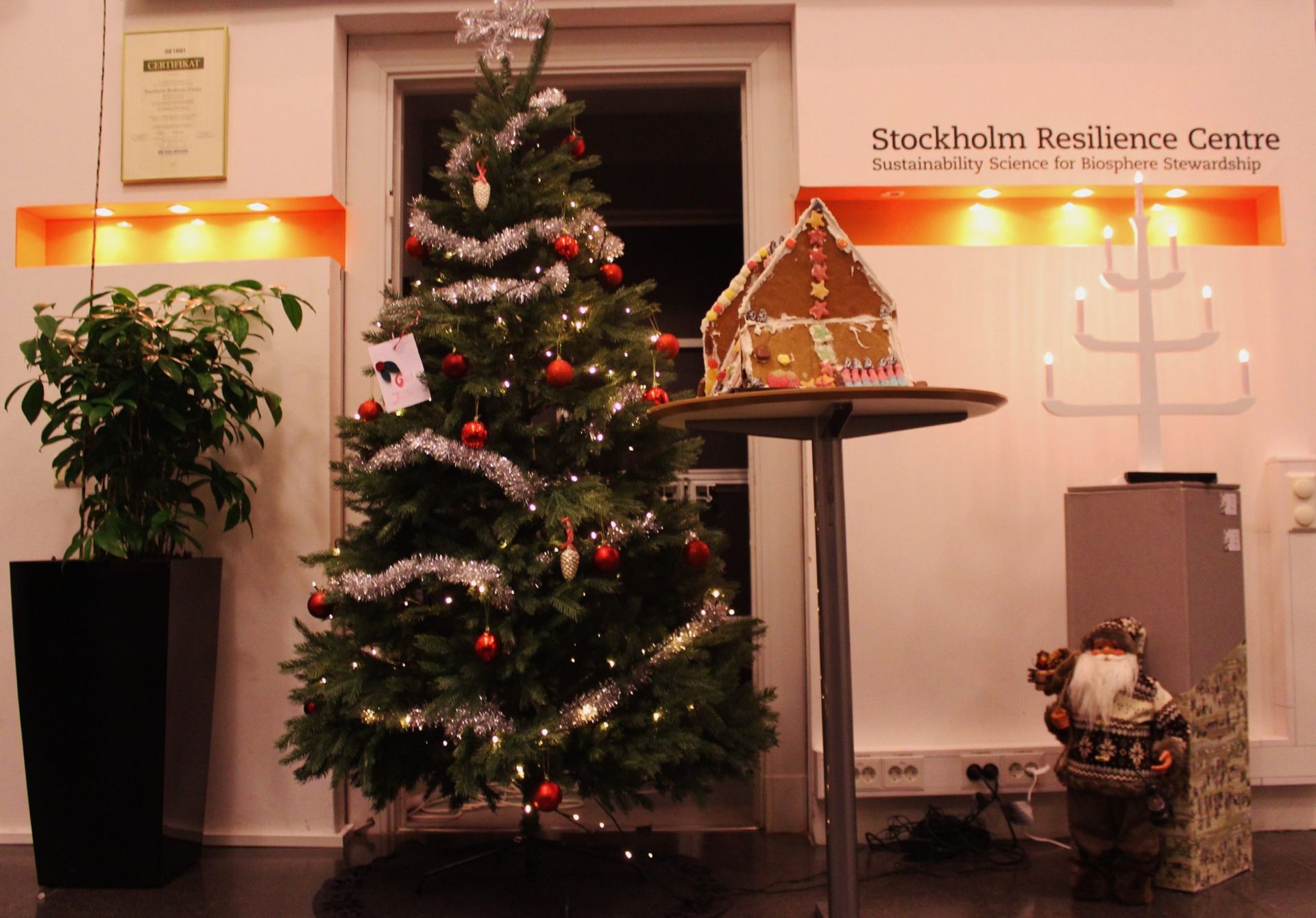
Written by Elke
22 Dec 2015
We are approaching the deadline for applications to study in Sweden (15th of January), so if you’re thinking about studying in Sweden, head over to the official admissions website for all Swedish universities and check out your options! This is also why I decided to write a blog post on my study program: the master’s in ‘Social-ecological resilience for sustainable development’ at the Stockholm Resilience Centre, linked to Stockholm University.
When I say this out loud it tends to provoke a lot of eye-twitching with the person I’m talking to, so I will try to explain it in a more simple way. In the Stockholm Resilience Centre the world is seen as consisting of many complex, adaptive systems. To give you a delicious example; think of cup of hot chocolate. (This can hardly be a problem in Swedish wintertime) The cacao beans that are in the piece of dark chocolate melting in the milk come from cacao trees from Peru. For this cacao tree to grow there and produce cacao beans a whole system is needed of fruitful soil, sunshine, rainfall, animals that keep competing plant species away … And this cacao tree is a house for many bird species, insects climbing on the tree trunk, worms digging their way through the roots and so on. These were clear examples of purely ecological systems, but the reality is that humans are so much involved and dependent in these ecological systems. There is a farmer who harvests the cacao for a living, and a whole system for producing the final product of chocolate and transporting it to Sweden. Then I need money that comes from a system where labour produces value in the form of a banknote or a number on my credit card that gives me the opportunity to buy my highly needed weekly dose of hot chocolate. Apologies if you are as hungry as I am right now, but I hope that between your drooling you managed to get the same understanding of social-ecological systems.
These systems are exposed to external shocks, such as droughts, a financial crisis, a plant disease, anything that can change the interactions within the system fundamentally. Some systems are more resistant to these shocks than others. Maybe the system to transport the chocolate is very quick in finding an alternative when one truck company goes bankrupt, but if a serious disease infects the cacao trees this could lead to a complete stop in the cacao industry in that place in Peru.
In my program we thus study how humans interact with nature, how resilient these systems are to cope with shocks coming from outside and within the systems, and how this can lead to management decisions for these systems.
Because these systems involve (excuse my big words) nearly all aspects of life, scientists of all fields of study are required to work with this perspective to get the big picture right. This is how I, a political scientist in nature, and some of my architecture, sociology, ecology, history, economy, … classmates were welcomed in the biology department of Stockholm University. Whatever our backgrounds were, we somehow became triggered by the sustainable development aspect of our studies. And not only our backgrounds are so diverse, our cultural roots are also widespread. We have students from Sweden (about half), Ireland, India, Mexico, Germany, Italy and so on. This diversity can make things get quite complicated because as individuals we often talk about the same things while using different words or use the same words but actually mean to say different things. Creating a common understanding through workshops, group work and lectures are thus key in this program. Sometimes it gets pretty though to study fields that you previously had zero knowledge about, but it also means we learn to be comfortable outside of our comfort zone, and that is where all the cool stuff usually happens anyway 🙂
Program build up:
First year: three courses and one traineeship. Courses are divided into smaller modules and all these have different methods for examination. (report, group presentation, field work, …)
Second year: our individual master’s thesis. This counts for 60 credits and is what the whole program is a build up to. The program is thus explicitly research orientated.
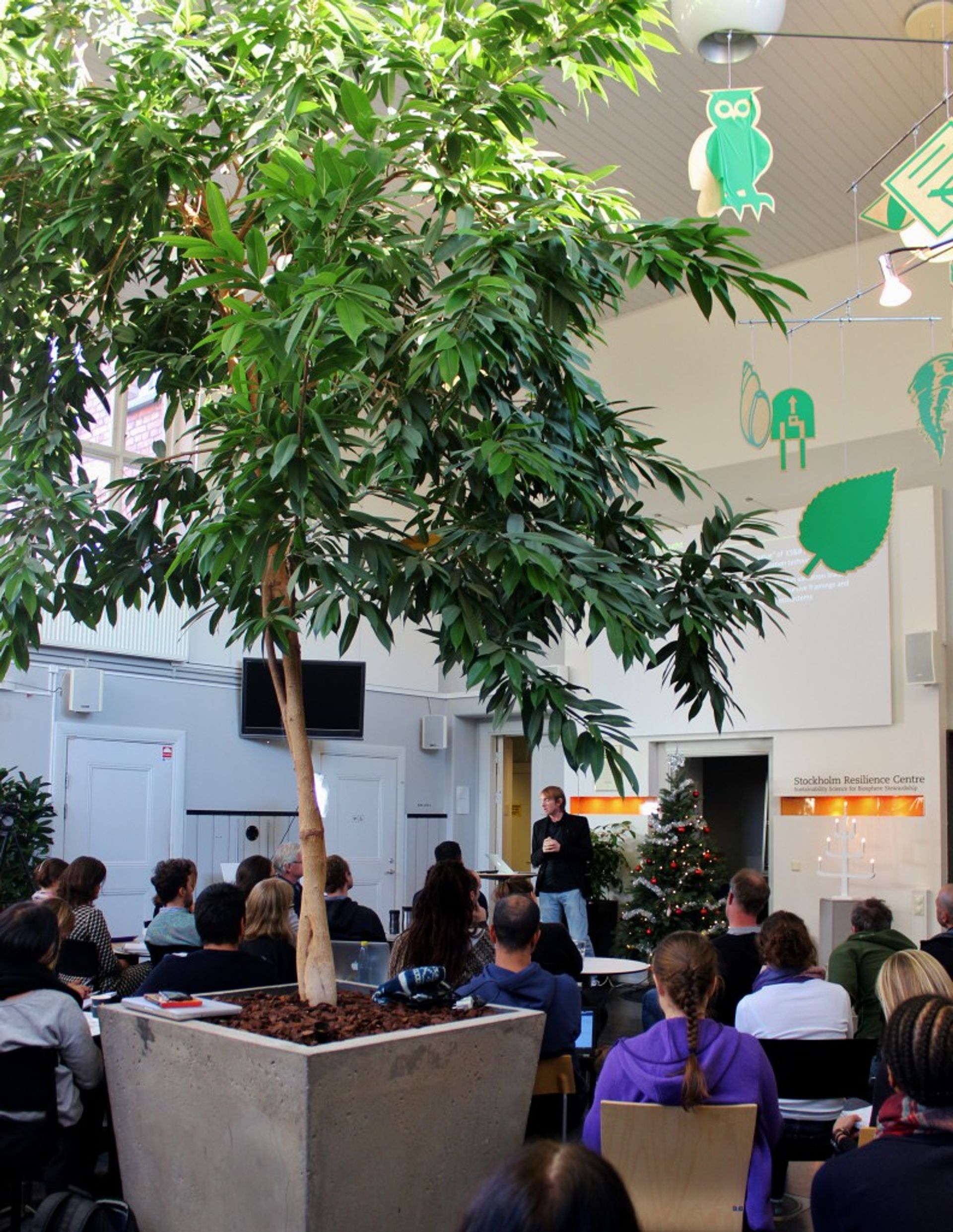
(Yes, this is a real tree enthusiastically filling up the Stockholm Resilience Centre)
Why I chose this program?
- We are on the brink of a whole new era in which humans realize their dependency and linkages with nature and reinvent their relationship with it (at least this is what a lot of people are hoping for). Big planetary processes such as climate change and ocean acidification are some of the most clear and recognized symptoms that show the need for this.
- The Stockholm Resilience Centre is well-known and lead by some of the most acclaimed scientists in this field of interdisciplinary research, such as Johan Rockstrom and Carl Folke.
- I found the environment, Stockholm as the capital of Scandinavia, a perfect place to get a hands-on experience on how sustainable development can be achieved. Stockholm is an urban hub with an incredible amount of parks, forests, lakes. Nature is literally right outside my doorstep.
- It’s very personal, and I think this goes for most study programs in Sweden. You are not thrown into a pound of millions of fishes trying to swim. Professors are called by their first name, and it is not unlikely you will end up drinking a beer with one of them. I got a lot of new moms and dads who make sure you are having a good time, and not only in school. On top of that we are only a group of 17 students, so there is a lot of room for individual feedback, questions, discussion etc.
Why my program is not always perfect:
- It is very time consuming. The days in class are long and you miss out on the already scarce daylight. When we are not in class we are required to be reading or doing group work. Skipping class to recover from a hangover is not in the cards, anyone would notice.
- You are constantly evaluated. We don’t have regular examination periods like most other programs do, but instead we have many presentations and tasks that all contribute a little bit to the final grade. This often makes me feel like I’m getting so little rewarding for the time put into the programme. It really requires a shift in your brain to stop thinking in terms of grading but instead in processes of learning.
- We are very isolated from the rest of the university, the Stockholm Resilience Centre is situated in Albano campus and this really limits us in having any contact with students from other programs.
- The study is very theoretical and it sometimes feels like being in a scientific bubble. It sometimes feels a bit arbitrary to talk about all these conceptualizations without experiencing real life examples. So that is why even though I am a little bit terrified of the lifelong work this huge thesis will require, I’m also pretty excited for it.
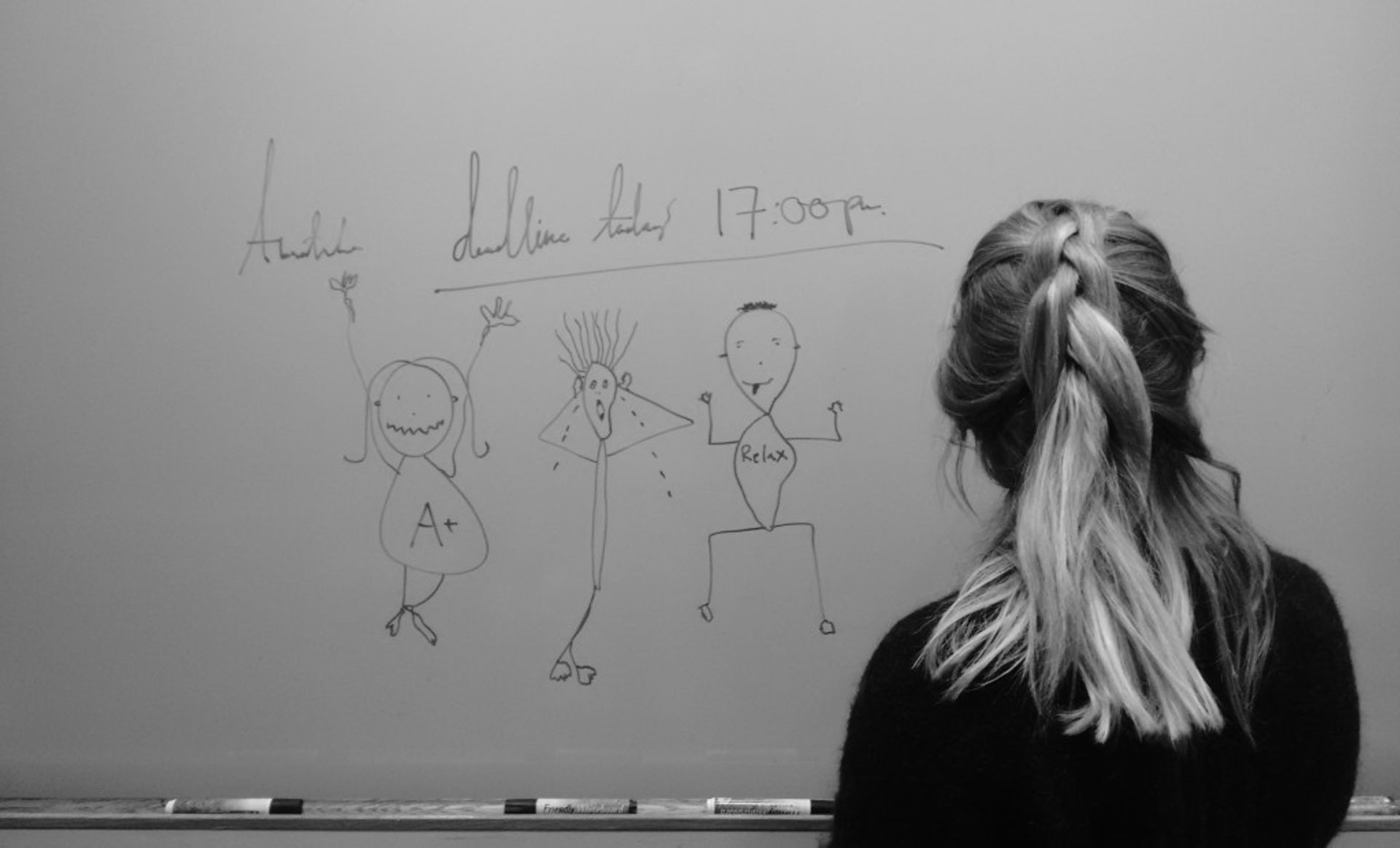
But after all… my programme is so much fun. As we are such a small group, we are also a tight bunch of friends and get to know each other really well!
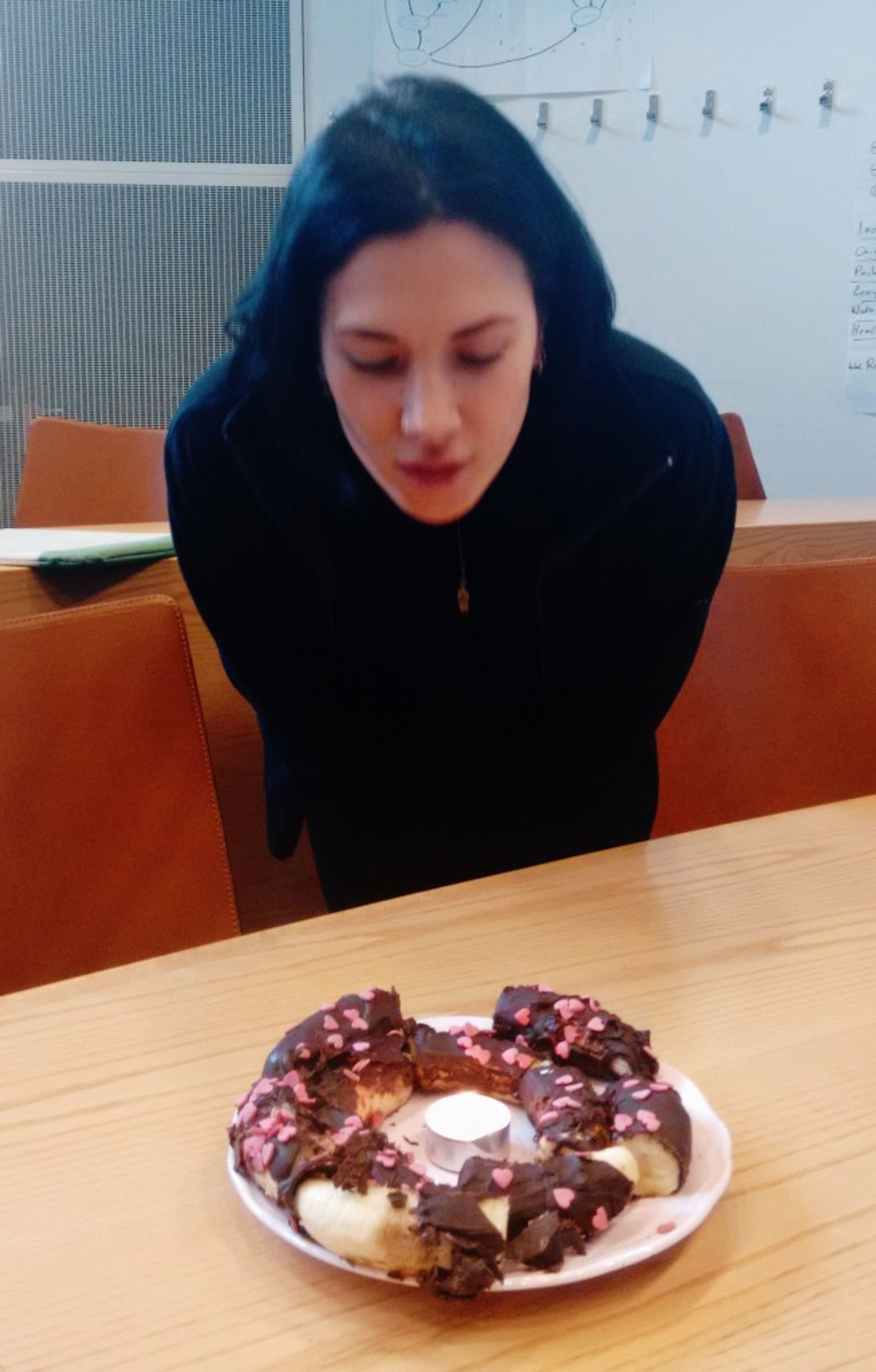
(Alternative) birthday cakes are part of the deal.
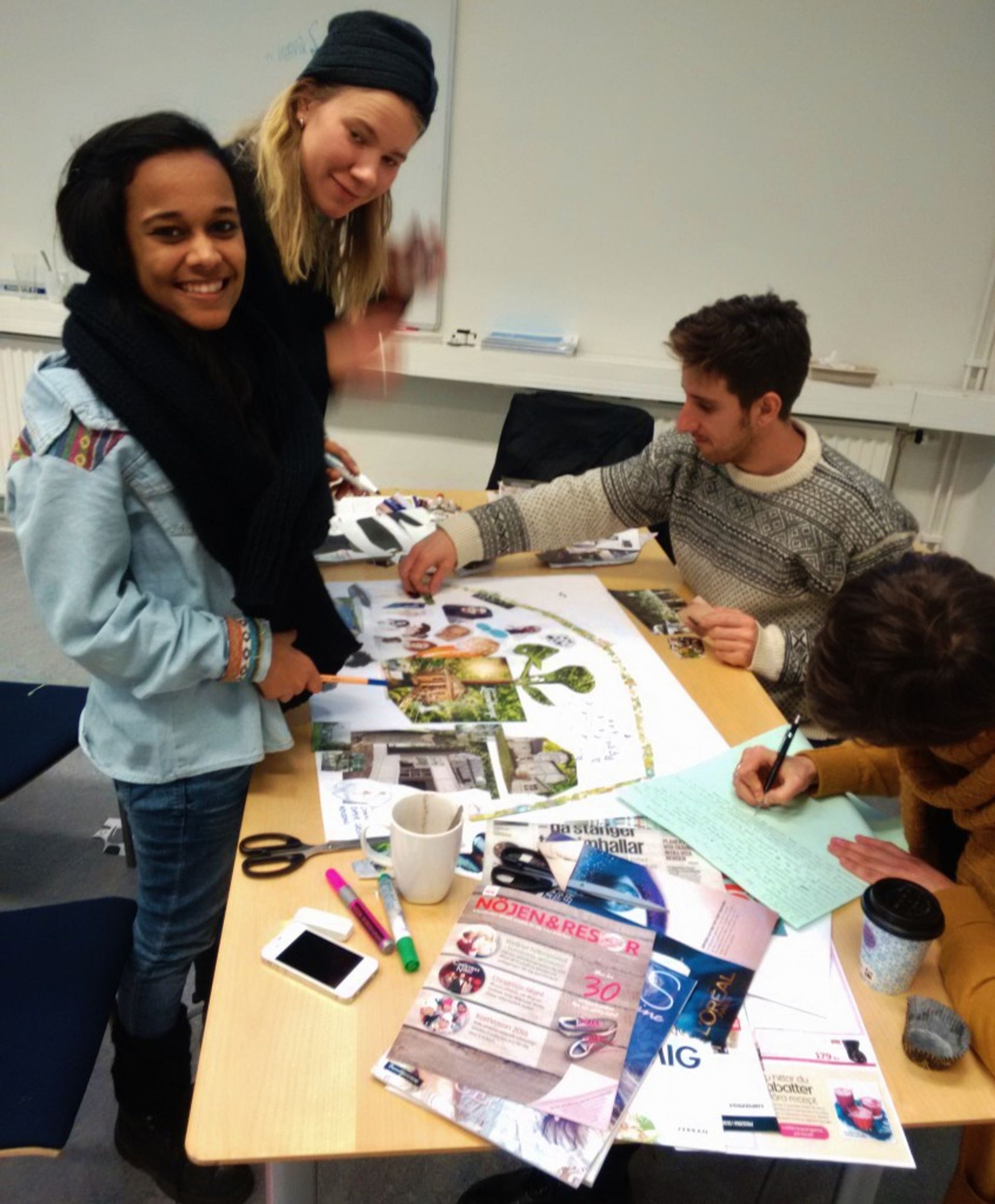
As well as brief moments of extreme crafting. Who ever wanted to leave kindergarden anyway?
